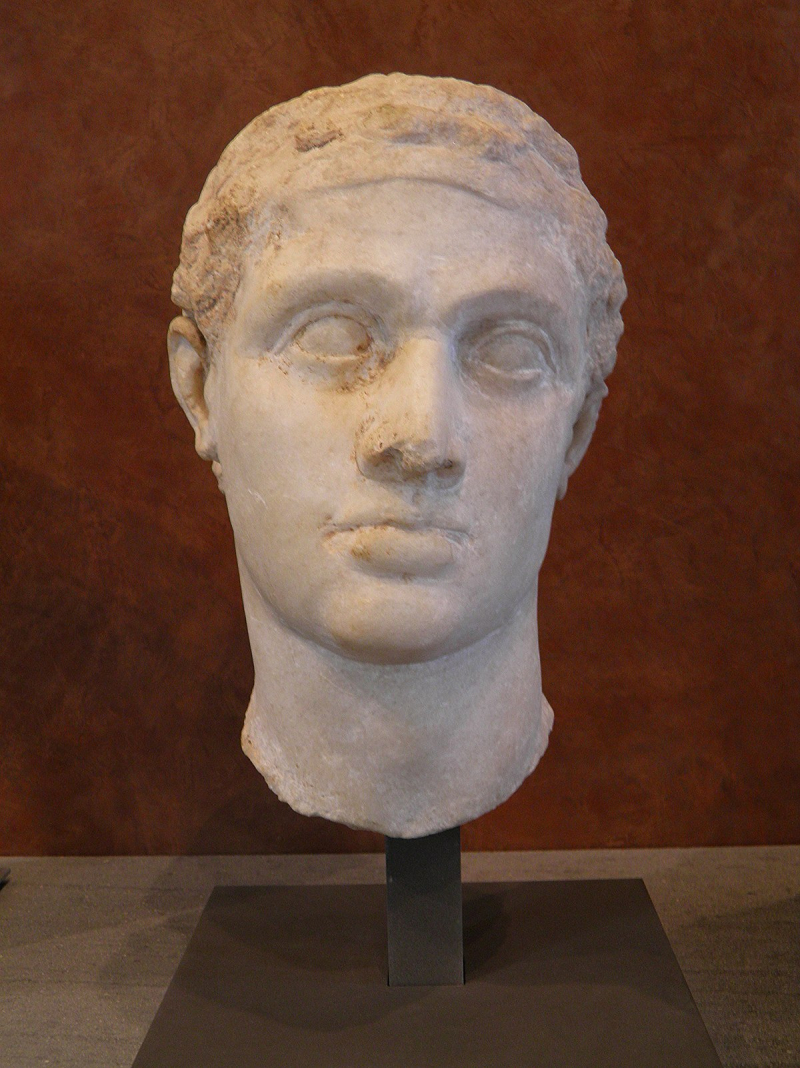She was the last active ruler of Egypt's Ptolemaic Kingdom
One of the most interesting facts about Cleopatra is that she was the last active ruler of Egypt's the Ptolemaic Kingdom. Cleopatra most likely accompanied her father, Ptolemy XII Auletes, to Rome in 58 BC, when an uprising in Egypt (a Roman client state) permitted his rival daughter Berenice IV to assume his kingdom. Berenice was assassinated when Ptolemy returned to Egypt with Roman military help in 55 BC. When he died in 51 BC, Cleopatra and her brother Ptolemy XIII began a shared reign, but a feud between them led to civil war. Pompey escaped to Egypt after losing the Battle of Pharsalus in 48 BC to his adversary Julius Caesar (a Roman dictator and consul) in Caesar's Civil War. Ptolemy XII had considered Pompey a political ally, but at the suggestion of his court eunuchs, Ptolemy XIII had Pompey ambushed and killed before Caesar arrived and captured Alexandria. Caesar then attempted to reconcile the two Ptolemaic siblings, but Potheinos, Ptolemy's chief adviser, saw Caesar's demands as favoring Cleopatra, so he besieged her and Caesar at the palace.
Ptolemy XIII died in the 47 BC Battle of the Nile, shortly after reinforcements lifted the siege; Cleopatra's half-sister Arsinoe IV was later exiled to Ephesus for her involvement in carrying out the siege. Caesar declared Cleopatra and her brother Ptolemy XIV joint rulers but continued to have a private affair with Cleopatra, which resulted in Caesarion, Caesar's son. Cleopatra visited Rome as a client queen in 46 and 44 BC, staying at Caesar's house.









